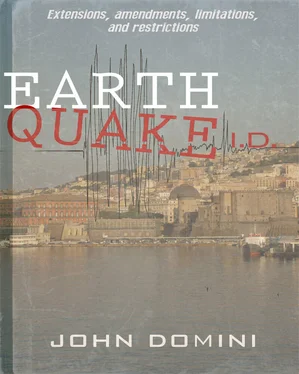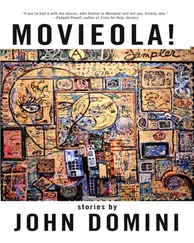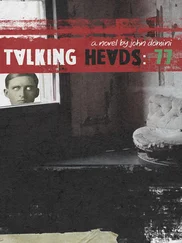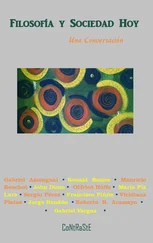Even now, the priest had two such lost souls camped in the church basement. The first time Barbara had spoken of the attack on her husband, Cesare had noted the date with interest; on her next visit, after he’d decided the American could be trusted, he’d revealed that he’d taken in “two poor creatures” that very same evening.
These two had been guests of the church for a week, Cesare reminded her now. “And it’s obvious, don’t you know,” he went on, “that these young men have had some scrape with the law. See them flinch when they hear a siren, it’s entirely obvious.”
The mother wasn’t sure what had brought this on.
“Well, one wonders, Mrs. Lulucita. These two in my care, one wonders if they weren’t the same fellows as attacked your husband.”
Barbara got a hand on her purse, a reflex.
“This husband who you claim had the power to drag you all the way across the Atlantic — well, two penniless beggars laid him low just like that.”
“Mary, mother of God. What are—”
“Take care, Signora. That’s a holy name you’re using.”
“But what are you saying?” She and the priest were alone. Between morning Mass and evening Mass, people in this neighborhood preferred to stay home with the appliances. Now Barb had the purse in her lap, her hands in fists around the handle. “Why are you telling me this?”
“Why are you complaining to me about some so-called power in a marriage? In this world, power is a piece of iron pipe. It’s a wallet full of Euros.”
“Oh, Father . The two that hit my Jaybird, that night they would’ve had the Euros. Now don’t you think they would’ve taken the money and run? That’s what the police think, they hightailed it for Norway or someplace that very night.”
Cesare had kept his own arms down. In another moment, unflappable, he undid what he’d just done. He pointed out that Jay’s attackers had had a motorcycle, which meant they must’ve worked with some under-the-table dealer out on the city’s periphery. Out in a mob neighborhood like Secondigliano, for instance. The two men the priest was keeping in the cellar, on the contrary, had shown up on foot.
“One could see that they didn’t even have 90 cents for the funicular.”
Barbara hadn’t quite shaken her panic, her blood-rush. “If you’re saying there’s no power dynamic in a marriage…” She tsked, irritated at her vocabulary, power dynamic . “If you’re saying it wouldn’t be about power out at the Refugee Center, the Glorious Jaybird Show, then you’re the one who doesn’t know how the world works.”
“But think of the reason you couldn’t stand to see him in power. If that man had power, signora, it was because you loved him.”
Sighing, Barbara lifted her purse and set it back down.
“It was love between you two,” the priest said.
At least she resisted the counseling-session response, I acknowledge that . She looked to the altar. A thing of glazed concrete, flecked with shards of glass in purple and green, it hardly seemed an Italian piece. It was New Age California.
“Well, and wouldn’t that love be the reason you still find yourself making love, actually, Mrs. Lulucita?”
“Oh, so far as that goes, listen.” Another reason she’d chosen this priest was how willing he was to talk about sex. “We can’t be sure what’s going on, so far as that goes. What does any of us know, honestly, when it come to the libido?”
“I suppose. But you are some years past forty.”
“Some years. Some years, there’s a nice way to put it.”
Much as she preferred straight talk, Cesare’s collar didn’t give him the right to check her hormonal balances. Whatever menopause or its approach might have to do with Barbara’s ongoing Neapolitan upheaval, she could handle that part of it herself. With Jay, she’d gone so far as to use the expression “change of life,” just the night before. This was after another spasm of clutching and gasping, turning to glass and tumbling through glass; her energy had been up.
“But,” the priest replied, “I’m not just talking about your body and its changes.”
“Cesare, I had five children, you know what I’m saying?”
“Indeed I do, signora. Your body and its changes, that’s your own affair, finally. What I’m trying to talk about is a long and happy marriage.”
And faithful too, Father. Barb, nodding, sighing again, recalled in silence her lone suspicion of adultery. She’d suffered a wondering night or two early during her final pregnancy — and in the next minute, never mind that she and Cesare weren’t in the confessional, she told him about it. “There were just two nights in twenty years,” the mother said, “two nights of something jay called a late inventory check, down at Viciecco & Sons.” And whatever kind of inventory the man had been taking, it was over and done with by the time the twins had entered their third trimester.
The priest had come closer again. “You have your doubts, but you don’t know for certain? You can’t bring yourself to ask him?”
“But haven’t you heard what I’ve been telling you, Father? Haven’t I been saying, inside a marriage, power is just as real as out on the street?”
“Well, power of a kind, I suppose. But you made your own choices. Didn’t you just see fit to remind me that you have five children?”
Do the math, Barbara. Three boys plus twin girls equals enough to keep you happy. Or it used to be enough, as she’d explained to the old Jesuit the last time.
“Oh listen,” she reiterated now, “the mother scene, that’s over for me.”
Cesare folded his arms, more sticks in sacks. “Really, Mrs. Lulucita?” Barbara had told him how she used to thrive in parenting, its snot and intimacy. “I heard you say that even on your first morning in Naples, on the most bewildering streets in Europe, you were such a dedicated parent that you could enter the mind of an eleven-year-old boy.”
“I know what I said, Father. Cesare. And I’ll tell you something, I know the girls even better than I know Paul. But those girls are out of third grade now.” Barbara faced the speckled altar wall again; she didn’t want to whine. “After this, the way their social life takes over, it’s as if they’ve gotten their driver’s license. The best part of being a mother, that was over before I left Bridgeport.”
Cesare might’ve shown some sympathy, a softening in his posture. But to hear him clear his throat, you would’ve thought he was grinding gears.
“Mrs. Lulucita.” His tone frosted the name’s musicality. “You know, Christ wasn’t nailed to the cross for unhappy wives.”
In his half-disgusted wave, Barb caught a glimpse of an alternative life. The man would’ve made a homosexual of the old school, courtly.
“In Dublin too, don’t you know, the complaining was quite interminable. The song of the unhappy bourgeois.”
‘You’re my priest,” Barbara told him. “I have to ask again, do you want me to lie? To live in a lie?”
“Well, let’s rehearse what we have here, shall we? Children grow up and leave home, isn’t that a fact of our existence? And lovers lose their charms, inevitably.”
Then with two knobby fingers still extended, Cesare reminded her that he went downtown three times a week, where he worked with people in real trouble. “The very sort of clandestini you’d find out at your husband’s worksite.”
“So.…” Barb needed another look around the church. “So what you’re saying is, before I book a flight for New York, I should go see what he’s up to.”
“We live in a time of a great challenge, Mrs. Lulucita, one that seems to have come straight from Christ’s teaching. This city, whether it can continue as a place of justice or not, seems now at the heart of that challenge.”
Читать дальше












